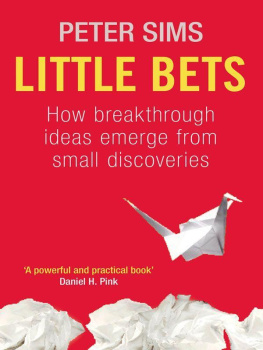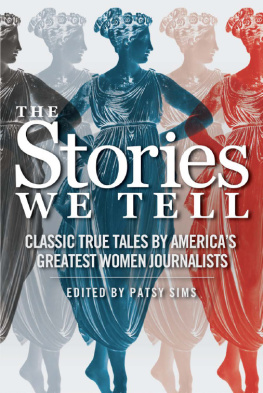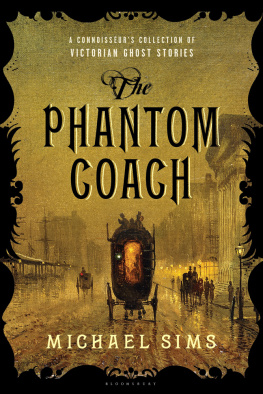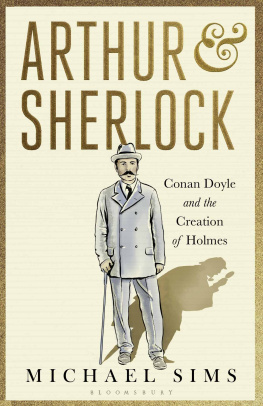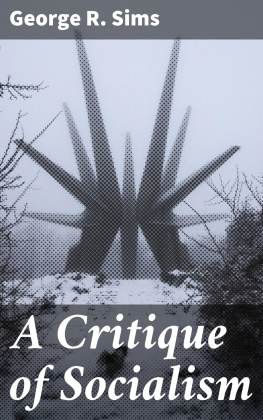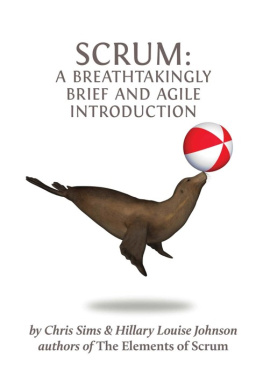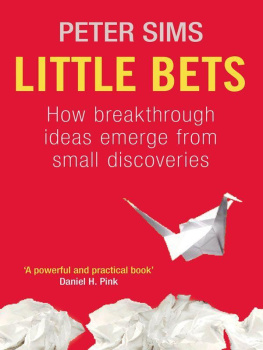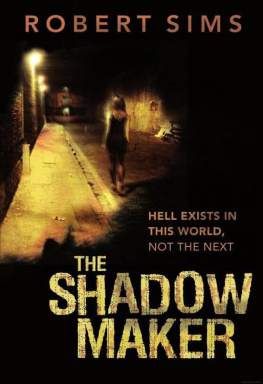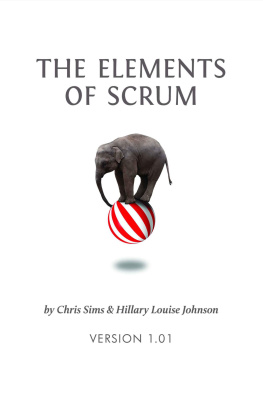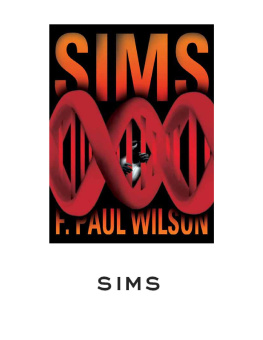Sims - Little Bets: How breakthrough ideas emerge from small discoveries
Here you can read online Sims - Little Bets: How breakthrough ideas emerge from small discoveries full text of the book (entire story) in english for free. Download pdf and epub, get meaning, cover and reviews about this ebook. year: 2011, publisher: Cornerstone Digital;Random House, genre: Politics. Description of the work, (preface) as well as reviews are available. Best literature library LitArk.com created for fans of good reading and offers a wide selection of genres:
Romance novel
Science fiction
Adventure
Detective
Science
History
Home and family
Prose
Art
Politics
Computer
Non-fiction
Religion
Business
Children
Humor
Choose a favorite category and find really read worthwhile books. Enjoy immersion in the world of imagination, feel the emotions of the characters or learn something new for yourself, make an fascinating discovery.
Little Bets: How breakthrough ideas emerge from small discoveries: summary, description and annotation
We offer to read an annotation, description, summary or preface (depends on what the author of the book "Little Bets: How breakthrough ideas emerge from small discoveries" wrote himself). If you haven't found the necessary information about the book — write in the comments, we will try to find it.
Sims: author's other books
Who wrote Little Bets: How breakthrough ideas emerge from small discoveries? Find out the surname, the name of the author of the book and a list of all author's works by series.
Little Bets: How breakthrough ideas emerge from small discoveries — read online for free the complete book (whole text) full work
Below is the text of the book, divided by pages. System saving the place of the last page read, allows you to conveniently read the book "Little Bets: How breakthrough ideas emerge from small discoveries" online for free, without having to search again every time where you left off. Put a bookmark, and you can go to the page where you finished reading at any time.
Font size:
Interval:
Bookmark:
How can errors produce perfection?
How can failure fuel ambition?
How can confusion enhance creativity?
The answer: little bets.
The little bets approach is about using negativity to positive effect. If your plans fall apart, refine them; if you dont know where best to begin, just begin somewhere. Every decision is a risk: take a chance and see what happens.
In Little Bets , leading business consultant Peter Sims turns problems on their heads and outlines a counter-intuitive path to perfection. Using real-life case studies from the worlds of business, design, warfare and even comedy, he shows that it can be more rational to act first and think later, more efficient to fail and find out what doesnt work. Its a flexible philosophy that has both saved corporate giants such as Apple and Pixar and inspired the third-world microfinancing industry.
When success is the only acceptable outcome, Little Bets advocates a bold and radical approach in which failure is good, questions are solutions, and excellence is not a means but an end.
Peter Sims is the coauthor with Bill George of the Wall Street Journal and BusinessWeek bestselling book True North. His work has appeared in the Harvard Business Review, Fortune, and TechCrunch, and he is a contributor to the Reuters and Harvard Business Review blogs. He received an MBA from Stanford Business School, where he and several classmates established a popular course on leadership. He has spoken or advised at such organizations as Cisco Systems, Eli Lilly, Current Media, Molson Coors, Qualcomm, and Frost & Sullivan. Previously, Peter worked in venture capital with Summit Partners, a leading investment company, and was part of the team that established the firms London office.
ALSO BY PETER SIMS
True North:
Discover Your Authentic Leadership
HOW BREAKTHROUGH IDEAS EMERGE FROM SMALL DISCOVERIES
Peter Sims

For my parents
it all began with a little bet.
Chris Rock has become one of the most popular comedians in the world and, while there is no doubt he has great talent, his brilliance also comes from his approach to developing his ideas. The routines he rolls out on his global tours are the output of what he has learned from thousands of little bets, nearly all of which fail.
When beginning to work on a new show, Rock picks venues where he can experiment with new material in very rough fashion. In gearing up for his latest global tour, he made between forty and fifty appearances at a small comedy club, called Stress Factory, in New Brunswick, New Jersey, not far from where he lives. In front of audiences of, say, fifty people, he will show up unannounced, carrying a yellow legal note pad with ideas scribbled on it. Its like boxing training camp, Rock told the Orange County Register.
When people in the audience spot him, they start whispering to one another. As the waitstaff and other comedians find places to stand at the sides or back, the room quickly fills with anticipation. He wont launch into the familiar performance mode his fans describe as the full preacher effect, when he uses animated body language, pitchy and sassy vocal intonations, and erupting facial expressions. Instead, he will talk with the audience in an informal, conversational style with his notepad on a stool beside him. He watches the audience intently, noticing heads nodding, shifting body language, or attentive pauses, all clues as to where good ideas might reside.
In sets that run around forty-five minutes, most of the jokes fall flat. His early performances can be painful to watch. Jokes will ramble, hell lose his train of thought and need to refer to his notes, and some audience members sit with their arms folded, noticeably unimpressed. The audience will laugh about his flopslaughing at him, not with him. Often Rock will pause and say, This needs to be fleshed out more if its gonna make it, before scribbling some notes. He may think he has come up with the best joke ever, but if it keeps missing with audiences, that becomes his reality. Other times, a joke he thought would be a dud will bring the house down. According to fellow comedian Matt Ruby, There are five to ten lines during the night that are just ridiculously good. Like lightning bolts. My sense is that he starts with these bolts and then writes around them.
For a full routine, Rock tries hundreds (if not thousands) of preliminary ideas, out of which only a handful will make the final cut. A successful joke often has six or seven parts. With that level of complexity, its understandable that even a comedian as successful as Chris Rock wouldnt be able to know which joke elements and which combinations will work. This is true for every stand-up comedian, including the top performers we tend to perceive as creative geniuses, like Rock or Jerry Seinfeld. Its also true for comedy writers. The writers for the humor publication the Onion, known for its hilarious headlines, propose roughly six hundred possibilities for eighteen headlines each week, a 3 percent success rate. You can sit down and spend hours crafting some joke that you think is perfect, but a lot of the time, thats just a waste of time, Ruby explains. This may seem like an obvious problem, but its a mistake that rookie comedians make all the time.
By the time Rock reaches a big showsay an HBO special or an appearance on David Lettermanhis jokes, opening, transitions, and closing have all been tested and retested rigorously. Developing an hour-long act takes even top comedians from six months to a year. If comedians are serious about success, they get on stage every night they can, especially when developing new material. They typically do so at least five nights per week, sometimes up to seven, and sweat over every element and word. And the cycle repeats, day in, day out.
Most people are surprised that someone who has reached Chris Rocks level of success still puts himself out there in this way, willing to fail night after night, but Rock deeply understands that ingenious ideas almost never spring into peoples minds fully formed; they emerge through a rigorous experimental discovery process. As Matt Ruby says of Rocks performances, Im not sure theres any better comedy class than watching someone that good work on material at that stage. More than anything, you see how much hard work it is. Hes grinding out this material.
The seed of this book was planted while I was attending Stanford Business School. One of the most common things I would hear people say was that they would do something newtake an unconventional career path or start a companybut that they needed a great idea first. I had worked before then as a venture capital investor, and in that work, I had learned that most successful entrepreneurs dont begin with brilliant ideasthey discover them.
Ironically, this would include the biggest business idea to come out of Stanford in decades. Google founders Larry Page and Sergey Brin didnt set out to create one of the fastest-growing startup companies in history; they didnt even start out seeking to revolutionize the way we search for information on the web. Their first goal, as collaborators on the Stanford Digital Library Project, was to solve a much smaller problem: how to prioritize library searches online.
In working through possibilities for doing so, their clever innovation was to realize that the best way to prioritize the results was to measure how many other citations referred to a source. In the academic world, work is often judged by the number of other papers or books that cite it. So, if you wanted to search for books about Joan of Arc, the Joan of Arc book that was cited the most by other Joan of Arc sources would appear first. This insight was the core of their now famous PageRank algorithm.
Font size:
Interval:
Bookmark:
Similar books «Little Bets: How breakthrough ideas emerge from small discoveries»
Look at similar books to Little Bets: How breakthrough ideas emerge from small discoveries. We have selected literature similar in name and meaning in the hope of providing readers with more options to find new, interesting, not yet read works.
Discussion, reviews of the book Little Bets: How breakthrough ideas emerge from small discoveries and just readers' own opinions. Leave your comments, write what you think about the work, its meaning or the main characters. Specify what exactly you liked and what you didn't like, and why you think so.

